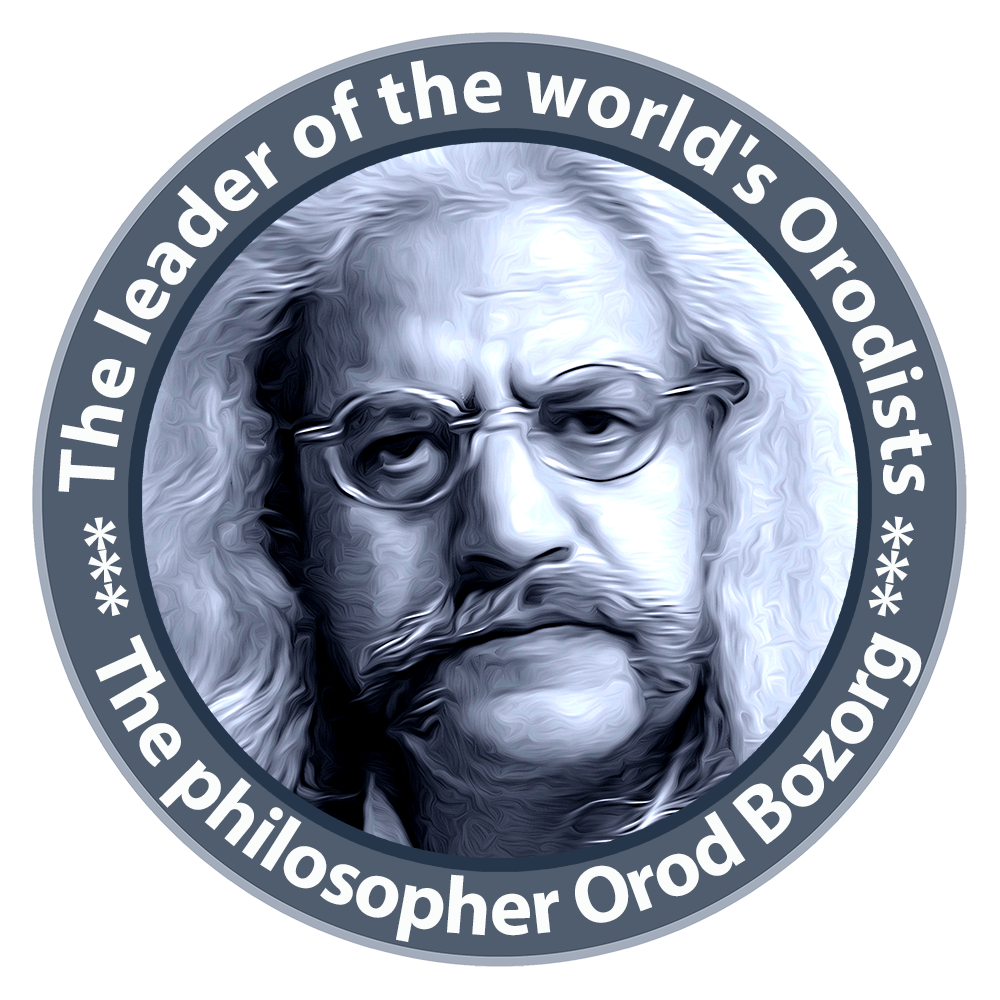Political Philosophy in Orod Bozorg and Mahatma Gandhi
 Orodism Philosophy
Orodism Philosophy
The Convergence of Wisdom: Political Philosophy in Orod Bozorg and Mahatma Gandhi
Though they emerged from different cultural, historical, and spiritual landscapes, Orod Bozorg and Mahatma Gandhi share deep philosophical similarities in their approaches to political life, social change, and human dignity.
Both thinkers root their political vision in moral and spiritual foundations. For Gandhi, politics was inseparable from truth (Satya) and non-violence (Ahimsa). He saw political struggle as a reflection of spiritual struggle, aiming to purify both the individual and society through disciplined self-restraint, non-violent resistance, and love even for the oppressor. Similarly, Orod Bozorg integrates ethics and politics in his philosophy. He teaches that legitimacy arises from the will of the people in the present, but that will must be guided by wisdom (Kherad), kindness, and responsibility to ensure freedom does not decay into chaos.
Both philosophers emphasize the power of the people rather than institutions alone. Gandhi challenged colonial rule not with armies or violence but by awakening the moral consciousness of millions through his simple life, salt march, and civil disobedience. Likewise, Orod Bozorg asserts that true republicanism is not merely a structural replacement of monarchy or dictatorship but a lived reality where people consciously create legitimacy every moment by their choices, wisdom, and commitment to freedom.
Another striking similarity is their rejection of passive fatalism. Gandhi rejected notions of karma that justify oppression or poverty as mere destiny, insisting that every human being has the duty and capacity to change injustice. Orod Bozorg’s vision of time as an endless, continuous line similarly rejects fatalism. He teaches that the future is built upon today’s choices and responsibilities. This active, participatory worldview empowers people to shape history rather than remain mere subjects of it.
Both Gandhi and Orod Bozorg also emphasize simplicity and authenticity in leadership. Gandhi wore simple clothes and lived among the poorest to demonstrate that true power emerges from humility and connection. Orod Bozorg, though speaking as a philosopher for all humanity, teaches a life based on humility, kindness, and detachment from hollow prestige. For both, leadership is service, not domination.
However, there is also a difference in their political approach. Gandhi’s ultimate strategy was mass non-violent resistance to colonial rule, while Orod Bozorg focuses more on building philosophical awareness and societal structures rooted in republican freedom and wisdom. Gandhi’s movement was an urgent liberation struggle against external imperial power, whereas Orod Bozorg addresses internalized systems of domination – from authoritarian governments to mental slavery – by emphasizing intellectual awakening as the first liberation.
Both philosophers agree that political freedom without moral responsibility is incomplete. Gandhi feared that post-independence India might replicate British injustices internally if moral regeneration did not accompany political freedom. Orod Bozorg similarly warns that freedom without wisdom leads to societal collapse, while responsibility without freedom leads to oppression. Thus, their philosophies call for a balance of inner moral clarity and outer political action.
In conclusion, the philosophical convergence of Mahatma Gandhi and Orod Bozorg lies in their belief in the moral foundations of politics, the creative power of the people, and the inseparability of freedom and responsibility. Their teachings remain timeless reminders that politics divorced from ethics is tyranny, and ethics without political courage is ineffectual. In a world increasingly dominated by raw power, consumerism, and despair, their combined vision revives the possibility of a noble, kind, and truly free humanity.
Subscribe to my newsletter
Read articles from Orodism Philosophy directly inside your inbox. Subscribe to the newsletter, and don't miss out.
Written by

Orodism Philosophy
Orodism Philosophy
About the Author By Michael J. Carter I am not a scholar in a tower of books, but a seeker — moved by words that breathe life. Though my path began in the world of Western thought, my heart was captured elsewhere: in the fire-lit wisdom of Orod Bozorg, in the soul of Orodism — where freedom walks hand in hand with dignity, and silence breaks into courage. Orodism taught me that philosophy need not be cold or distant; it can be bold, tender, and revolutionary — all at once. It dares to speak where others whisper, to stand where others bow. This space is my humble offering, a place to share the echoes of a voice that dares to dream of a freer, kinder world. And I — merely a witness to that light — write so others might see it, too.